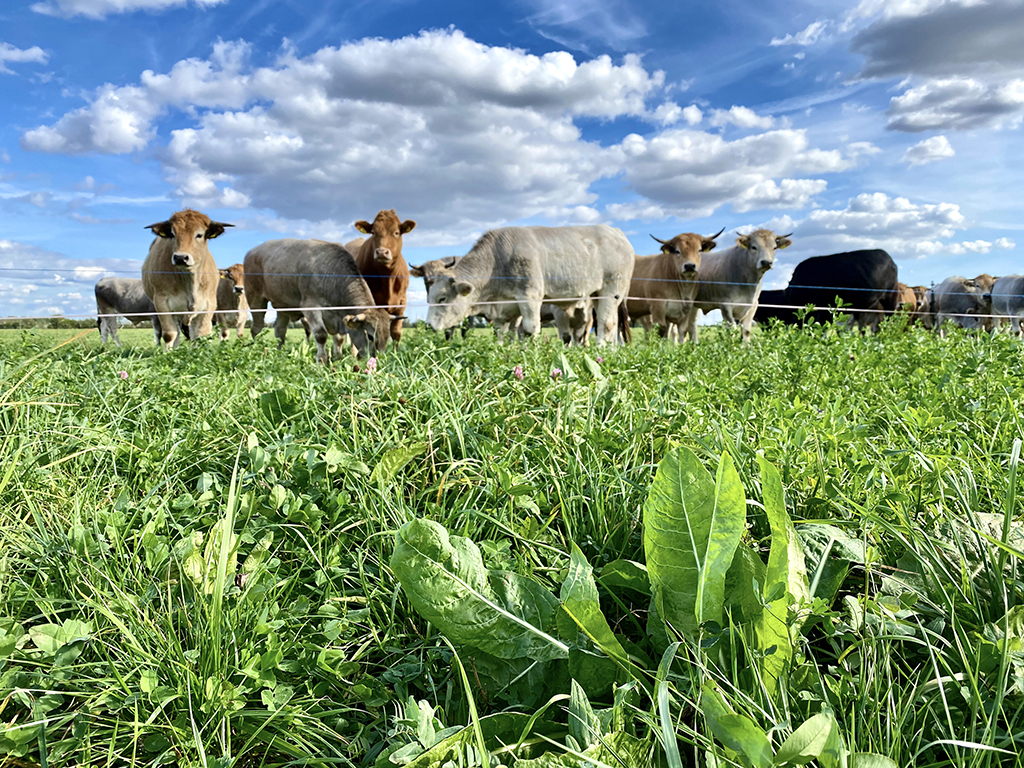Planned start date: 01.03.2023
Planned end date: 15.12.2027
Pasture use is a central component of organic farming and is also stipulated in the guidelines as a mandatory feeding system for roughage consumers.
Pastures are among the most intensively used crops on an organic grassland farm. A lot of fertilizer is produced through the animals' excretions, but this is not optimally distributed, which is why the stocks between the feces and urinary areas get worse and worse over time. As part of a plot test, the effect of supplementary pasture fertilization with manure on pasture yield and forage quality is to be evaluated with different additional fertilization intensities.
Regularly and intensively used pastures not only have a low growth height but also show a lower root depth in response. Therefore, on locations with longer dry phases, pasture systems with a low growing height are clearly at a disadvantage. In addition, there is a higher proportion of open ground, which increases the direct evaporation of water from the ground. The classic short-grass pasture, which is mainly made up of the low-growing undergrasses English ryegrass and meadow bluegrass, drops significantly in yield in dry periods. In a second pasture experiment, a paddock system for dairy cows is to be tested on plots where other herd compositions are to be checked. These will be enhanced by cultivated fodder herbs and data will be provided on how such stocks in the Alpine region perform in terms of yield and feed quality.









